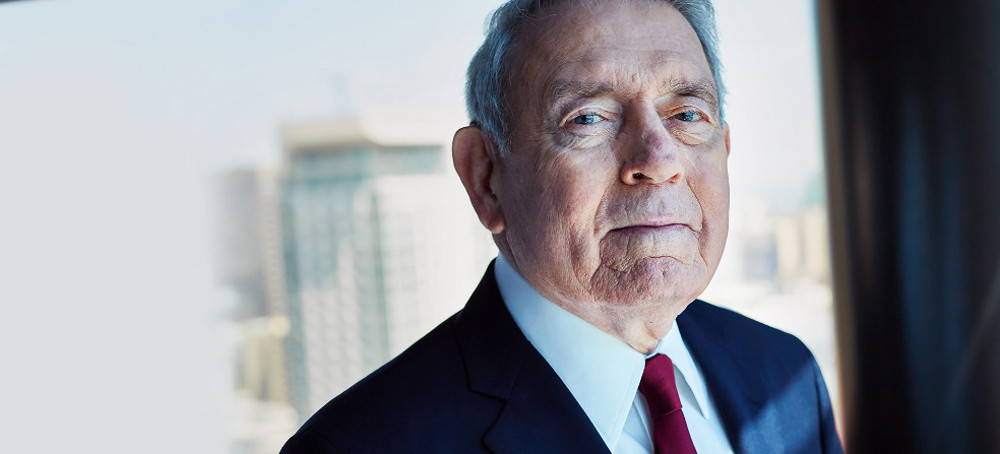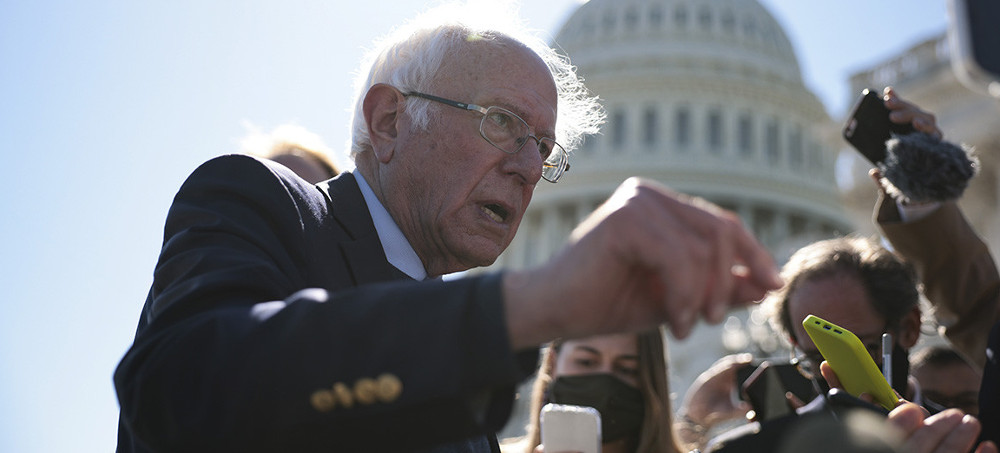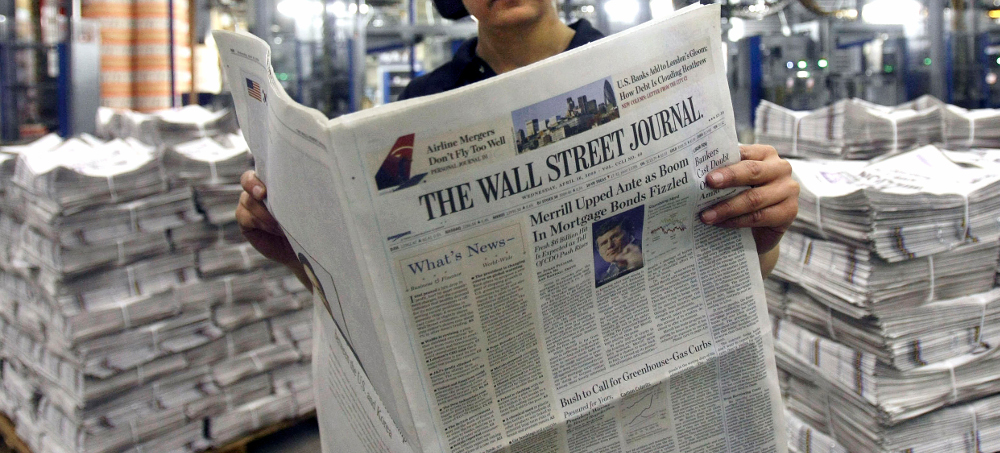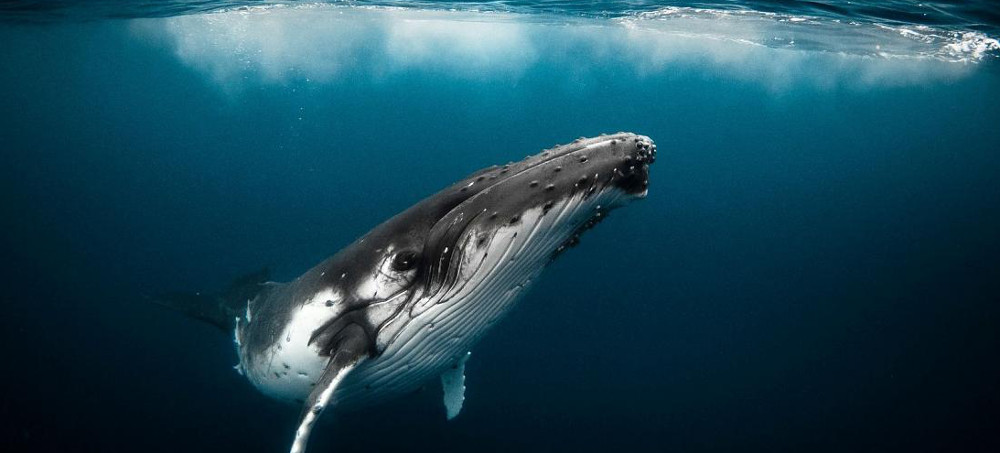
28 October 21
Live on the homepage now!
Reader Supported News
ALL WHO DO NOT DONATE — This is a special appeal to all those RSN readers who appreciate what we do, but do not donate. Your help would make a big difference. The donation process is painless, just hit the link below. Thanks for your attention.
Marc Ash • Founder, Reader Supported News
Sure, I'll make a donation!

Dan Rather | Do You Facebook?
Dan Rather and Elliot Kirschner, Steady
Excerpt: "The revelations coming out about Facebook are shocking, but also not really."
The revelations coming out about Facebook are shocking, but also not really. They continue to confirm the worst suspicions of many, that in a drive for profit at all costs Mark Zuckerberg has pursued a policy that harms health and safety, broadly defined. From stoking hate, to undermining democracy, to spreading lies about Covid and vaccines, Facebook has played a key role in making our world more dangerous. It appears that the alarm bells for what was happening were ringing loudly from inside the company, as employees saw algorithms built to maximize engagement pushing users to increasingly extreme, lie-filled, and rage-inducing content.
Facebook has been a vital tool for many of us. It provided this aging reporter with a platform to share my views widely about the important news of the day. However, the more we have learned about the social media giant, the more conflicted I and I know many others have become. In recent years, I also noticed that many of our more thoughtful posts on the website seemed to be getting less reach. Was that the algorithm at play or less interest from our readers? We hadn’t changed what we were doing substantially.
One of the reasons we came to Substack was to find a place for long-form content that wasn’t controlled by Facebook, where we could communicate directly with our readers. So a big thank you to all who are subscribing and supporting our effort.
But I still maintain a Facebook account to share what I do here with those (presumably including some of you) who follow me there. We constantly question whether we should continue to do so. But for now, we do not want to leave behind those who find us on Facebook.
So the question for us today is what is your approach to Facebook?
Were you ever on it?
Are you still?
If you quit, when did you leave and why?
If you are still using it, have you changed how you engage, and how frequently?
What do you hear from friends and family in our social group about their uses of Facebook?
As always, we love to read the discussion in the comments. So please respond to each other, with courtesy of course.
READ MORE
 Sen. Bernie Sanders. (photo: Getty)
Sen. Bernie Sanders. (photo: Getty)
Sanders Signals House Should Hold Off on Infrastructure Vote
Alexander Bolton, The Hill
Bolton writes: "Sen. Bernie Sanders (I-Vt.) on Thursday said he's not prepared to support a stripped-down $1.75 billion framework unveiled earlier in the day by the White House, and signaled that progressives in the House should hold off on voting for a separate infrastructure measure."
Sen. Bernie Sanders (I-Vt.) on Thursday said he’s not prepared to support a stripped-down $1.75 billion framework unveiled earlier in the day by the White House and signaled that progressives in the House should hold off on voting for a separate infrastructure measure.
Sanders argued that House progressives shouldn’t send the bipartisan infrastructure bill to President Biden’s desk until they know that all 50 members of the Senate Democratic caucus support the reconciliation package.
“Before there is a vote in the House on the infrastructure bill, the members of the House have a right to know that 50 U.S. senators are supporting a strong reconciliation bill,” he said.
Sens. Joe Manchin (D-W.Va.) and Kyrsten Sinema (D-Ariz.) have made positive remarks about the framework but have stopped short of full-throated endorsements.
The White House wants to see the bipartisan infrastructure bill passed, and Speaker Nancy Pelosi (D-Calif.) says she's bringing the bill to the floor, daring progressives to oppose it.
But Sanders, a leader of progressives on both sides of the Capitol, said the framework has "major gaps."
“Clearly to my mind it has some major gaps in it. The American people are very, very clear that they’re sick and tired of paying the highest prices in the world for prescription drugs. There is to the best of my knowledge no language in there that takes on the pharmaceutical industry,” Sanders told reporters outside his office.
The bill does not include a measure to allow the government to negotiate prescription drug prices for Medicare and other programs with drug companies.
The remarks from Sanders could give House progressives cover to vote against the infrastructure bill if Pelosi moves forward with a floor vote on Thursday.
Progressive leaders after a trip by Biden to Capitol Hill, where he spoke to House Democrats, were not saying they'd vote for the infrastructure bill.
While Sanders praised the White House framework as a “major, major step forward,” he said there was room for improvement.
“I’m going to do my best to make a good bill even stronger,” he said. “We have got to move forward to dental, as well as eyeglasses and the cost of prescription drugs.”
The framework extends Medicare coverage to hearing, but not to dental and vision, as he'd desired.
Sanders said “members of the House in my view are going to have to have an assurance” from Manchin and Sinema that they will support the budget reconciliation bill.
“What you don’t want to see is the infrastructure bill pass and then not have the kind of Build Back Better bill that we need,” he said. “That’s why you need 50 members [of the Senate] on board before there should be a vote, in my view, in the House.”
READ MORE
 Wall Street Journal. (photo: Getty)
Wall Street Journal. (photo: Getty)
Wall Street Journal Reporters Object While Opinion Section Prints Trump's Letter to the Editor
Brian Stelter, CNN
Stelter writes: "The Wall Street Journal's Opinion section published a lengthy letter to the editor from Donald Trump on Wednesday that was full of the former US president's debunked claims and conspiratorial falsehoods about the election he lost last year."
The Wall Street Journal's Opinion section published a lengthy letter to the editor from Donald Trump on Wednesday that was full of the former US president's debunked claims and conspiratorial falsehoods about the election he lost last year.
Former Journal staffers said the letter fell far short of the publication's standards. And some current staffers expressed frustration on condition of anonymity.
The Journal's opinion operation is separate from the newsroom — and sometimes downright oppositional toward the news side. But both are part of Rupert Murdoch's cherished newspaper, which is a key part of the News Corp portfolio.
Several Journal reporters grumbled about the letter after it came out on Wednesday, but none were surprised it was published, given the Opinion section's right-wing and contrarian bent.
"I think it's very disappointing that our opinion section continues to publish misinformation that our news side works so hard to debunk," one of the reporters said. "They should hold themselves to the same standards we do!"
It is especially striking since the Journal's newsroom has been lauded for its extensive coverage of Facebook misinformation. Whistleblower Frances Haugen shared documents with the Journal that formed the basis of the Facebook Files series.
Yet the Opinion section is providing a forum for the same sort of bogus content — in this case, election denialism — that Facebook (FB) has been criticized over.
"Putting falsehoods and misinformation in your newspaper and website is a terrible disservice to your readers. It violates their trust and tarnishes your brand," said Ken Herts, a veteran Journal executive, wrote on Twitter. Herts is now COO of The Lenfest Institute for Journalism.
Herts was responding to a former deputy managing editor of the Journal, Bill Grueskin, who wrote, "Why didn't the editorial page fact-check it, or delete the most egregious lies? Good question!"
Similar disputes over differing standards have broken out in the past between the news and opinion camps and have sometimes spilled into public view.
On Wednesday, some Journal newsroom staffers hinted at their dissatisfaction through retweets that were critical of the Trump letter. At least one reporter retweeted The Daily Beast's Matt Fuller, who wrote, "Newspapers don't exist so that powerful people can publish whatever lies they want. In fact, that may be one of the very opposite reasons newspapers exist."
So what was the justification for publishing the letter to the editor? No comment, thus far. A spokesman for the Journal did not respond to a request for comment on Thursday.
READ MORE
 The pandemic accelerated the rise of this digital piecework where humans support AI. (photo: iStock)
The pandemic accelerated the rise of this digital piecework where humans support AI. (photo: iStock)
Big Tech's Push for Automation Hides the Grim Reality of 'Microwork'
Phil Jones, Guardian UK
Jones writes: "With the realization that machines are immune to viruses and social distancing, we have seen the return of an apocalyptic consensus: according to one recent prediction, as many as half of all work tasks are at risk of automation by 2025."
The pandemic accelerated the rise of this digital piecework where humans support AI
When customers in the London borough of Hackney shop in the new Amazon Fresh store, they no longer pay a checkout operator but simply walk out with their goods. Amazon describes “just walk out shopping” as an effortless consumer experience. The rise of automated stores during the pandemic is just the tip of the iceberg. Floor-cleaning robots have been introduced in hospitals, supermarkets and schools. Fast-food restaurants are employing burger-grilling robots and chatbots. And delivery bots are being rolled out at an accelerated pace. As Anuja Sonalker, chief executive of Steer Tech, a tech company specialising in self-parking, ominously said last year: “Humans are biohazards, machines are not.”
With the realisation that machines are immune to viruses and social distancing, we have seen the return of an apocalyptic consensus: according to one recent prediction, as many as half of all work tasks are at risk of automation by 2025. Such gloomy forecasts conjure a world where robots do all the work and humans are consigned to history’s dustbin.
We’ve been here before. Throughout capitalist history, times of crisis have bred anxieties about robots stealing our jobs. After the 2008 financial crash, a series of studies pointed to an automation tsunami that would swallow as much as half of the world’s work in the coming decades. Although that much-prophesied dystopia has not yet arrived, a scenario less spectacular but equally grim is growing in its shadow: the rise of microwork. In short, microwork refers to the human “jobs” that involve nudging artificial intelligence in the right direction. Workers, mainly in the global south, sit at computers clicking on images that, for instance, show autonomous vehicles how to navigate city centres, facial recognition cameras how to spot emotions, and marketing software how to spot breeds of horse.
“For a penny, you might pay for a person to tell you if there is a human in a photo,” Jeff Bezos explained, at the public opening of Amazon Mechanical Turk (MTurk), the first and most infamous of such sites. Like other similar platforms, such as Clickworker, which match underemployed and jobless people with online piecework, Mechanical Turk operates on a simple premise. The platform hosts contractors, often large tech companies such as Twitter, who outsource short data tasks such as labelling images – lasting a few seconds to a few minutes – to workers with few labour rights or secure hours.
Such sites have seen a boom in users during the pandemic. At a time when many have lost their jobs and are stuck inside, work that only requires an internet connection and a laptop can offer a much-needed source of income. The platforms often present the work as the preserve of glamorous young freelancers. But hazy promises of the remote -work dream disguise a brutal reality. Many workers on these sites have few other options, or are otherwise excluded from the formal economy. They may reside in poor rural areas, prisons or refugee camps, and find microwork through non-governmental programmes that aim to “Give Work, not Aid”. A World Bank researcher in 2012 wrote of a situation where millions of tiny digital tasks generated “thousands of jobs”. But microwork is often so sporadic and poorly paid it can hardly be called a “job”. In 2018, formerly middle-class Venezuelans facing an increasingly desperate economic situation sat at laptops and annotated images of urban areas to train autonomous vehicles. Workers were paid by the task and, in some cases, made less than $30 a week.
In many respects, the work differs little from the survivalism of “wage hunters and gatherers”, who spend their days doing a dizzying range of odd jobs such as shoe-shining, selling tissues and picking litter. With jobs on microwork sites lasting as little as a few seconds, workers must continually hunt for work, and might be contracted by upwards of 50 “requesters” over the course of a day. Carved into tiny segments, the jobs are opaque, often surreal and sometimes humiliating. One task on Mechanical Turk allegedly asked workers – or “Turkers” – to post pictures of their feet for reasons unexplained.
Opacity, however, is no software glitch. By design, the platforms obscure operations and preclude worker organisation, promising contractors a dream scenario: all the work without the troubles associated with an actual workforce. Impenetrable rating systems, which permit contractors to reject “bad” tasks out of hand, only allow workers to contact and “challenge” the contractors, who are under no obligation to reply. Wage theft is thus all too common – a report by the International Labour Organization found that on one major platform, about 15% of all tasks go unpaid.
In a statement, which has been edited for length, Amazon Web Services said, “MTurk is a marketplace where requesters determine how much they are willing to pay a worker to complete a specific task. The amount of compensation workers receive depends on the price requesters set, the number of tasks workers complete, and the quality of their work. Most workers see MTurk as part-time work or a paid hobby, and they enjoy the flexibility to choose the tasks they want to work on and work as much or as little as they like. While the overall rate at which workers’ tasks are rejected is very low (less than 1%), they also have access to a number of metrics that can help them determine if they want to work on a task, including the requester’s historical record of accepting tasks.”
The freedoms many of us have enjoyed working from home during the pandemic are the flipside of new kinds of control and surveillance. Meetings on Teams and Zoom send data straight to Microsoft and Amazon. Militant bosses have made employees keep their webcams on to display their faces and keystrokes. Like the workers on microwork sites, our labour is increasingly captured as data to power artificial intelligence. How the data is then used remains a mystery. Maybe to directly show AI how to do our jobs; or perhaps to expose AI to data about the emotions we experience at work. One thing seems clear: increasingly the primary or secondary role of work is no longer just work, but to show robots how to do our jobs, even if this aspiration in many cases remains a far-flung fantasy.
But the picture is not wholly bleak. Just as these sites act as experimental labs for new forms of exploitation and control, they also generate new strategies of resistance. In lieu of union representation, workers resort to letter-writing campaigns to draw attention to their work, forums that challenge the platform, and browser plug-ins to spotlight unscrupulous contractors. Online forums become loose networks of support that offer advice and guidance to platform users. These tactics remain in their infancy. But as all our jobs are increasingly driven by the demands of “big data”, we will need similar tactics to wrestle back some control of our working lives – as well as taking notice of those who make our digital lives so seemingly “effortless”.
READ MORE
 Sen. Ted Cruz (R-TX) said a parent's use of Nazi salute is "nonviolent" while he questioned Attorney General Merrick Garland on Oct. 27. (photo: Senate Judiciary Committee)
Sen. Ted Cruz (R-TX) said a parent's use of Nazi salute is "nonviolent" while he questioned Attorney General Merrick Garland on Oct. 27. (photo: Senate Judiciary Committee)
A Man Gave a Nazi Salute at a School Board Meeting to Oppose Mask Rules. Ted Cruz Defended It as a Form of Protest.
Julian Mark, The Washington Post
Mark writes: "In a hearing on Wednesday, Sen. Ted Cruz (R-Tex.) pressed Attorney General Merrick Garland over his recent efforts to understand and curb the risk of violence at public school board meetings about coronavirus policies and race-based lessons."
In a hearing on Wednesday, Sen. Ted Cruz (R-Tex.) pressed Attorney General Merrick Garland over his recent efforts to understand and curb the risk of violence at public school board meetings about coronavirus policies and race-based lessons.
Attempting to illustrate that the threats do not warrant Justice Department involvement, the Texas Republican referenced a letter from the National School Boards Association that listed examples. “They involve things like insults,” Cruz said. “They involve a Nazi salute — that’s one of the examples.”
Slamming his hands on dais and raising his voice, Cruz continued: “My God! A parent did a Nazi salute at a school board because he thought the policies were oppressive.”
The senator was referring to an August incident in which police removed a man from a Birmingham, Mich., school board meeting about a student mask mandate after officials said he flashed the Nazi salute and chanted “Heil Hitler.”
Cruz then asked Garland if doing a Nazi salute at an elected official was protected by the First Amendment, and Garland replied that it was.
Hours later, Cruz clarified his comments on Twitter, saying he “was defending the right of citizens to denounce authoritarian policies.” A spokesperson for Cruz did not immediately respond to questions from The Washington Post late Wednesday.
Cruz’s comments quickly went viral, with one clip on Twitter amassing 1.9 million views by early Thursday. The comments drew criticism from observers who said Cruz was endorsing the use of the Nazi salute, with some pointing out that he made the comments exactly three years after a man yelling antisemitic slurs killed 11 people at the Tree of Life synagogue in Pittsburgh.
“Just Ted Cruz defending Nazis,” Rep. Eric Swalwell (D-Calif.) tweeted.
Cruz defended his comments, saying “lefty journos” who reported on his remarks were either “dishonest” or “not very bright.”
“The parent was doing the Nazi salute because he was calling the authoritarian school board Nazis—evil, bad … abusive,” Cruz tweeted. “And yes, calling someone a Nazi is very much protected by the First Amendment.”
Cruz’s remarks came as Republicans have fiercely criticized Garland over a memo he issued on Oct. 4 that detailed the Justice Department’s intent to examine and address threats of violence against public school officials. At hearings in both the House and Senate over the past week, GOP lawmakers accused Garland of trying to squelch parents who disagree with school leaders.
Garland wrote the memo after the National School Boards Association asked President Biden in a Sept. 29 letter to take action as school meetings grew increasingly heated. The association listed instances of unruly behavior, including the Nazi salute, and likened some incidents to “a form of domestic terrorism” — a claim some Republicans seized upon to cast Garland’s directive as politically motivated. (Garland did not use the phrase in his memo, and the association later apologized for the letter.)
At Wednesday’s Senate Judiciary Committee hearing, following a tense exchange over the directive, Sen. Tom Cotton (R-Ark.) also grilled Garland, ending his questioning by saying: “Thank God you are not on the Supreme Court. You should resign in disgrace, Judge.”
It was a reference to GOP senators blocking former president Barack Obama’s 2016 nomination of Garland to the court.
School board meetings around the country have become increasingly bitter in recent months as parents debate coronavirus policies, gender issues and lessons that deal with racism. At such meetings, parents have disrupted proceedings, threatened officials and engaged in physical fights.
Like the parent using the Nazi salute, there have been numerous instances of conservative figures invoking Nazism and the Holocaust to challenge mask and vaccine mandates. Rep. Marjorie Taylor Greene (R-Ga.) compared individuals leading President Biden’s vaccine push to “brown shirts,” and other politicians have worn yellow Stars of David to protest vaccine checks.
Cruz’s home state has seen several recent public displays of antisemitism. A neo-Nazi group recently traveled to Austin, wearing clothing with swastikas and hung an antisemitic sign from a freeway overpass, KSTX reported. That same week, an Austin high school with a large Jewish population was graffitied with swastikas and racial slurs.
READ MORE
 Pro-democracy protests continued in Sudan's capital, Khartoum, and other large cities, a day after the country's top military general detained the prime minister, seized power and derailed a transition to civilian rule. (photo: EPA)
Pro-democracy protests continued in Sudan's capital, Khartoum, and other large cities, a day after the country's top military general detained the prime minister, seized power and derailed a transition to civilian rule. (photo: EPA)
African Union Suspends Sudan Over Coup
Al Jazeera
Excerpt: "The African Union (AU) has said it suspended Sudan from all its activities after the country's military overthrew the civilian-led transitional government in a coup."
The pan-African body says the suspension will be in place until the civilian-led transitional government is restored.
The African Union (AU) has said it suspended Sudan from all its activities after the country’s military overthrew the civilian-led transitional government in a coup.
The African Union Political Affairs Peace and Security on Wednesday tweeted the news of the suspension, an expected move typically taken in the wake of military coups.
In a communique, the pan-African body said the suspension would be in place until “the effective restoration” of the transitional authority steering the country towards elections.
It came as the World Bank also on Wednesday followed the United States in suspending aid to Sudan following the widely condemned military takeover.
Meanwhile, state oil company workers and doctors said they would join a growing campaign of civil disobedience called by a coalition of unions against the power grab.
Soldiers on Monday seized Prime Minister Abdalla Hamdok and briefly detained him in the coup that came just more than two years into a fragile power-sharing arrangement between the military and civilians after the former removed longtime President Omar al-Bashir in April 2019 in the wake of mass protests against his rule.
General Abdel Fattah al-Burhan imposed a nationwide state of emergency across the country and dissolved Hamdok’s transitional government and the top ruling body, the Sovereign Council, a joint military-civilian power-sharing authority.
The news prompted tens of thousands of pro-democracy demonstrators to pour into the streets of the capital, Khartoum, and its twin city Omdurman. The demonstrations met gunfire by the security forces, with at least seven people killed and dozens more wounded, according to health sources.
Protesters returned to the streets on Tuesday despite the security forces’ violent response, blocking roads with burning tyres and setting up barricades.
A group of neighbourhood committees in Khartoum announced on Wednesday plans for further protests, leading to what it said would be a “march of millions” on Saturday. In one Khartoum neighbourhood, a Reuters journalist saw soldiers and armed people in civilian clothes removing barricades erected by protesters.
A few hundred metres away, youths came out to build barricades again minutes later. One of them said, “We want civilian rule. We won’t get tired.”
In a televised speech on Tuesday, al-Burhan defended the military’s move, saying it was meant to avoid a civil war. He also pledged to hold elections, as planned, in July 2023, and to appoint a technocratic government in the meantime.
But critics doubt the military is serious about eventually ceding control, noting that the coup came just weeks before Burhan was supposed to hand over the leadership of the Sovereign Council, to a civilian.
Following widespread international condemnation, the military allowed Hamdok and his wife to return home under guard on Tuesday night.
READ MORE
 Whales are unusually good at taking CO2 out of the atmosphere. (photo: Lindsay Imagery)
Whales are unusually good at taking CO2 out of the atmosphere. (photo: Lindsay Imagery)
Restoring Whales to Their Pre-Hunted Numbers Could Capture 1.7 Billion Tons of CO2 a Year
Lottie Limb, EuroNews
Limb writes: "There's no doubt that whales are one of the most extraordinary animals on our planet, but did you know that they're also helping to lighten the load of climate change?"
There’s no doubt that whales are one of the most extraordinary animals on our planet, but did you know that they’re also helping to lighten the load of climate change?
We tend to think of trees as doing the bulk of natural work to absorb CO2 from the atmosphere. While that’s certainly true on land, under the sea these titans of the ocean are playing a huge role.
Whales store large amounts of carbon in their bodies, and when they die they take it to the bottom of the ocean floor. Known as ‘whale falls’, these sinking carcasses ensure that the carbon is trapped in the deep sea rather than being released in surface waters.
Whales are doing the lion’s share of carbon storage undersea
New research at marine sanctuaries off San Francisco has revealed that whale falls represent roughly 60 per cent of annual carbon sequestration (or storage) there. This is greater than the combined efforts of ‘kelp export’ - where seaweed moves carbon loads out to the deep ocean - and the carbon-capturing habitats of seagrass and salt marsh.
In total, the four processes and habitats have the potential to lock away 4,950 megagrams of carbon (MgC) each year - the equivalent of 18,150 metric tonnes of CO2. That’s 140 times the amount of CO2 that is emitted from operations at the sanctuaries, according to the Greater Farallones Association.
The report's authors say their findings are intended to steer managers of Marine Protected Areas towards better conserving these climate-critical resources.
But looking after whales is not something that humans have historically been good at.
The critical case for restoring whale populations to pre-whaling levels
Tens of millions of whales were killed during the thousand-year period of industrial whaling. It culled their populations by anywhere between 66 to 90 per cent in pursuit of meat, oil and other products, a 2014 study found.
Scientists estimate that before whaling began, whale populations (excluding sperm whales, which feed at greater depths) would have sunk up to 1.9 million tonnes of carbon per year.
As if the colossal beauty of whales were not sufficient reason to care for them in life, their use to us in (natural) death makes a compelling and urgent case for restoring their numbers.
And in fact, while still swimming through the great blue, whales provide another valuable climate service with their poo. Their iron-rich faeces stimulates the growth of phytoplankton - tiny marine algae which capture around 40 per cent of all the CO2 produced in the world.
Altogether, the IMF estimates that whales could capture 1.7 billion tonnes of CO2 annually if allowed to return to their pre-whaling numbers.
READ MORE
Contribute to RSN
Follow us on facebook and twitter!
Update My Monthly Donation
PO Box 2043 / Citrus Heights, CA 95611










